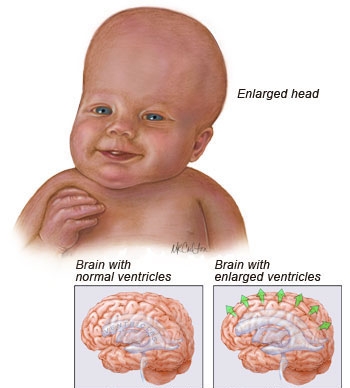
Hydrocephalus is fluid build up in the cavities of the brain called water bags. This increases the size of the bags (ventricles) and puts pressure on the surrounding brain. This damages the brain and leads to impaired brain function. This problem can happen at any age of life, but is more common in infants.
Symptoms vary according to the age. Infants present with unusually large head or a rapidly increasing head circumference. Some may have a tense soft spot (fontanel) on the top of the head. They may also have vomiting, irritability and lack of growth. Their eyes may be fixed downwards (sun set sign). Older children may present with personality change and decline in school performance.
Young adults present with headache, impaired or double vision and decline in memory. Elderly people present with loss of bladder control and memory. They may also have difficulty in walking.
Water (CSF) is produced in the ventricles. It flows into the spaces around the brain and gets absorbed by the blood vessels. Hydrocephalus is caused when there is an imbalance between production and absorption. This can occur when there is
- Obstruction in normal pathway
- Poor absorption due to any inflammation
- Over production
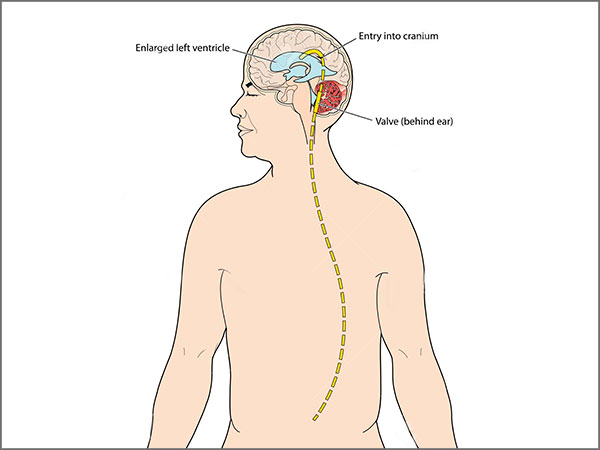 |
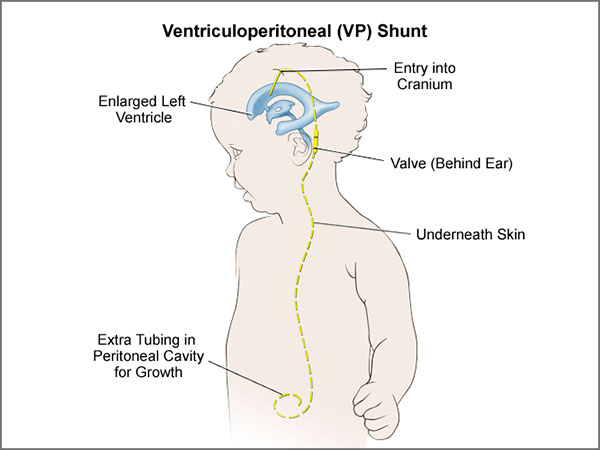 |
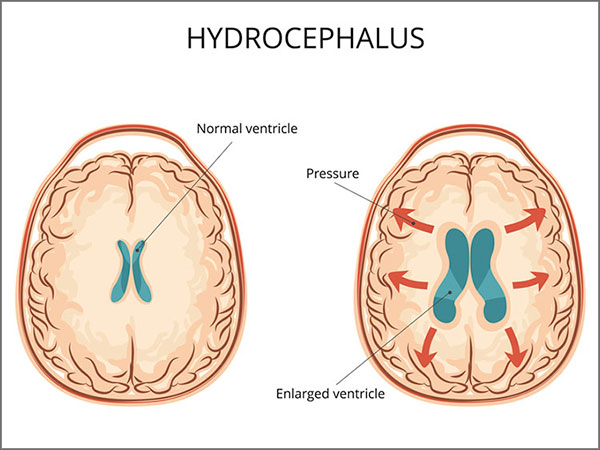 |
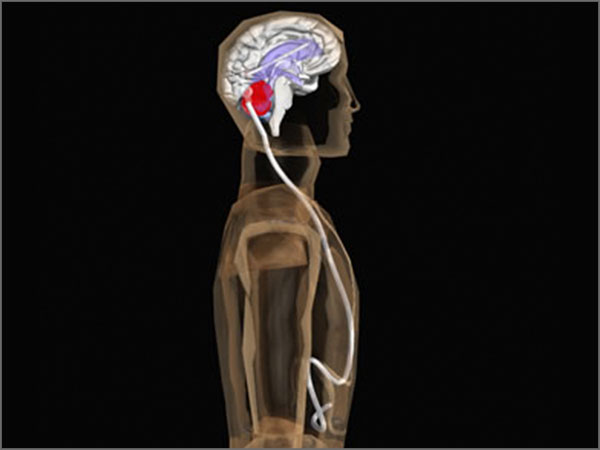 |


